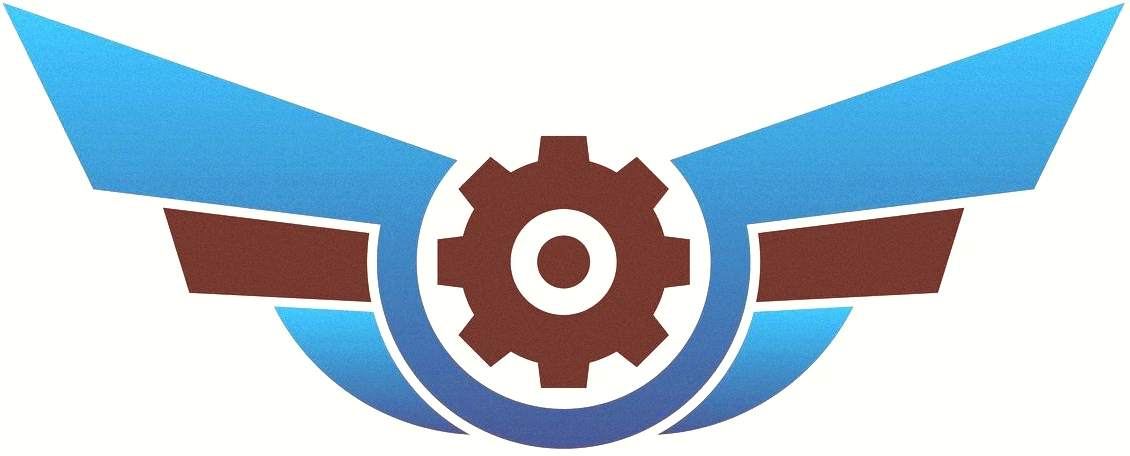The University of the District of Columbia (UDC) offers two aviation maintenance programs through its community college division: an Associate of Applied Science (AAS) in Aviation Maintenance Technology and a Certificate in Aviation Maintenance Technology. Both programs are FAA Part 147-approved and conducted at Hangar #2 at Ronald Reagan Washington National Airport. Students benefit from experienced instructors, small class sizes, and access to professional equipment and aircraft.
Quick Facts
- Length: 20 Months to 24 Months
- Cost: $17,000 to $24,000
- Location: Washington, DC
- Website: https://www.udc.edu/cc/programs-majors/aviation-maintenance-technology-aas
Aviation Maintenance Programs Summary
AAS in Aviation Maintenance Technology
In the Associate of Applied Science program students gain hands-on experience in aircraft systems, electrical theory, turbine and reciprocating engines, structures, and avionics. Courses such as AVMT 121C, AVMT 122C, and AVMT 214C ensure students are well-prepared for FAA certification exams.
Graduates of the AAS program develop critical thinking, technical, and communication skills. Many have gone on to work at DCA and IAD airports and enjoy a median annual salary of $81,000. The program also includes participation in national competitions like the Aerospace Maintenance Competition and scholarship opportunities from AWAM and HFI.
Cost & Duration
This degree program includes 70 credit hours and can be completed in approximately 24 months.
Estimated cost is about $24,400.
- Estimated Total =$24,400
- 70 credit hours x $324/credit = $22,680 (tuition)
- 4 semesters × $430 fees = $1,720 (fees)
Curriculum
The curriculum combines FAA-mandated technical training with general education courses in math, physics, English, geography, and computer-aided design.
Course include:
- MATH 113C Pre-Calculus I A foundational mathematics course covering algebraic functions, equations, inequalities, exponential and logarithmic functions, and conic sections. Designed to prepare students for calculus through comprehensive study of algebraic notation, symbolism, and graphing techniques.
- AVMT 121C Aviation Maintenance Fundamentals Introduction to aircraft terminology, federal aviation regulations, and maintenance documentation. Covers aircraft ground handling, construction principles, aerodynamics, and flight theory for both fixed and rotary wing aircraft through lecture and hands-on practicum.
- AVMT 122C Aircraft Materials and Processes Comprehensive study of non-metallic airframe components including fabric, wood, fiberglass, Kevlar, and graphite composites. Students gain practical experience in covering techniques, structural repair, and modern composite maintenance methods used in contemporary aircraft.
- MATH 114C Pre-Calculus II Advanced mathematical concepts including trigonometric functions, identities, complex numbers, polynomials, and mathematical induction. Focuses on solving trigonometric equations and systems while building skills necessary for calculus success.
- AVMT 124C Aircraft Metallic Structures Detailed examination of metallic airframe construction including monocoque, semi-monocoque, and tubular truss structures. Emphasizes repair techniques using FAA-approved data, with hands-on welding laboratory covering oxyacetylene and inert gas welding practices.
- AVMT 125C Aircraft Systems and Components Study of critical aircraft systems including landing gear, hydraulics, fuel systems, brakes, and atmospheric control. Students perform comprehensive 100-hour conformity inspections on actual aircraft to develop real-world maintenance skills.
- GEOG 104C World Physical Geography Spatial analysis of Earth’s physical phenomena and their relationship to human environments. Covers geographic tools, earth-sun relationships, and the major spheres: atmosphere, lithosphere, hydrosphere, and biosphere.
- AVMT 211C Aircraft Electrical & Electronic Syst. Fundamentals of AC/DC circuits, electrical diagram interpretation, and troubleshooting using professional test equipment. Students analyze circuits using Ohm’s Law and perform hands-on repair of aircraft electrical, navigation, and communication systems.
- AVMT 212C Turbine Engine Theory and Overhaul Comprehensive turbine engine training covering design principles, operation theory, and power output variables. Includes practical experience in engine inspection, overhaul procedures, lubrication systems, and diagnostic techniques.
- AVMT 214C Reciprocating Engine Theory and Overhaul Four FAA-approved subjects covering reciprocating engines, ignition systems, starting systems, and fire protection. Students perform engine calculations, complete overhaul procedures, and gain expertise in magneto inspection, timing, and fire detection systems.
- AVMT 215C Aircraft Engine Systems and Components In-depth study of engine fuel systems, induction systems, cooling mechanisms, exhaust systems, and propeller operations. Culminates with students conducting complete 100-hour conformity inspections on aircraft engines.
- AETC 205C Introduction to CADD Construction Documents Introduction to Computer-Aided Design Drafting (CADD) as a professional design and production tool. Students learn to create construction documents and specifications while developing skills in office production management and technical drawing principles.
More curriculum information here: https://docs.udc.edu/catalog/2024-2026-UDC-Catalog.pdf
Certificate in Aviation Maintenance Technology
Students who complete the certificate program are eligible to take the FAA’s written, oral, and practical exams for A&P certification. The testing is available onsite at the UDC airport facility. Graduates often enter the workforce immediately in entry-level technician roles, supported by the program’s strong local industry connections.
Cost & Duration
The certificate program requires 48 credit hours and typically takes four semesters (about 20 months) to complete.
Estimated cost is $17,270:
- 48 credit hours x $324/credit = $15,552 (tuition)
- 4 semesters × $430 fees = $1,720
- Estimated Total =$17,270
Curriculum
This FAA-approved curriculum includes approximately 1,900 hours of classroom and lab instruction focused entirely on airframe and powerplant systems. Students study 45 areas of aviation technology, such as hydraulics, welding, avionics, composite materials, and turbine engine systems.
Faculty and Facilities
UDC faculty include licensed A&P technicians and experienced engineers like Program Director Alusine Ibrahim Kanu and Professor Ambrose Kun, both of whom bring decades of academic and professional expertise. Facilities at Hangar #2 include classrooms, labs, and testing centers equipped for advanced maintenance training.
Accreditations and Special Features
UDC’s aviation programs are accredited by the Federal Aviation Administration under FAR Part 147. The school offers access to industry-aligned scholarships, career mentorship, and hands-on learning in a real airport environment.
These programs combine affordability, industry connections, and strong instructional support, making UDC a competitive option for aspiring aviation maintenance professionals.
